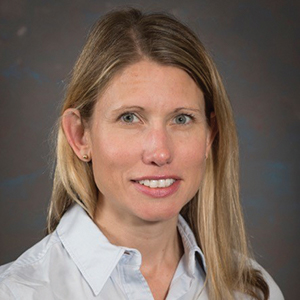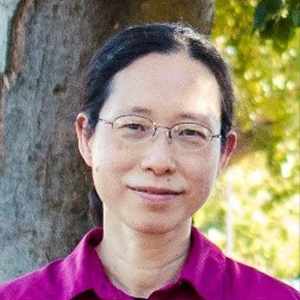
Carbohydrates for life, health and diseases
What molecules determine human ABO blood groups? What do influenza viruses grab when they infect a human? What define the serotypes of bacterial species? What are the most diverse protein post-translational modifications? The answer to all of these questions is “carbohydrates.”
Indeed, carbohydrates are indispensable biomolecules and components that are essential for life. They are key recognition components of many biological and pathological events. Synthesizing glycans and understanding the roles of carbohydrates used to be daunting tasks but, thanks to recent progress, have become easier.
The exciting talks in our symposium at Discover BMB, the annual meeting of the American Society for Biochemistry and Molecular Biology, which will be held in March in Seattle, will present recent advances made on several fronts: glycan synthesis, tools developed, chemical biology, and the roles and the applications of carbohydrates in health and diseases.
The topics include human and bacterial glycans, biocatalysis, chemoenzymatic synthesis, glycomics, glycoproteomics, anti-glycan antibodies and the roles and applications in learning, memory and treatment of adult diseases.
We aim to engage aficionados as well as those interested in learning more about how to implement these approaches in their own research.
Keywords: Biocatalysis, carbohydrates, glycans, glycoscience, synthesis, recognition.
Who should attend: Anyone interested in the recent advances in the synthesis, roles and applications of glycans and glycoconjugates.
Theme song: “Watermelon Sugar” by Harry Styles.
This session is powered by a sugar rush.
Speakers
Synthesis of glycans for exploring their role in health and disease
Xi Chen (chair), University of California, Davis
Catherine L. Grimes, University of Delaware
Rita Gerardy–Schahn, Hannover Medical School
Steven D. Townsend, Vanderbilt University
Jerry Troutman, University of North Carolina at Charlotte
Chemical glycobiology and tools for glycoscience
Catherine Grimes (chair), University of Delaware
Mireille Kamariza, Harvard University
Jeff Gildersleeve, National Cancer Institute
Lingjun Li, University of Wisconsin
Tania Lupoli, New York University
Carbohydrate biocatalysts and glycan-binding probes/materials
Catherine Grimes (chair), University of Delaware
Xi Chen, University of California, Davis
Barbara Imperiali, Massachuetts Institute of Technology
Kelley Moremen, University of Georgia
Vered Padler–Karavani, Tel Aviv University
The complete list
Learn about all 11 symposia planned for Discover BMB 2023:- Protein Machines and Disorder
- Regulation of RNA
- Organelles, Mechanisms and Phase Properties of Cellular Quality Control
- Lipid Dynamics and Signals in Membrane and Protein Structure
- Frontiers in Carbohydrate Synthesis and Recognition
- Bias In, Bias Out in Data Science
- Cell Signaling — New Tools and Emerging Concepts
- Education and Professional Development
- Biochemistry of Elemental Cycling
- Advances in Organismal and Cellular Metabolism
- Artificial Intelligence and Machine Learning in Structural Biology, Drug Design and Systems Biology
Enjoy reading ASBMB Today?
Become a member to receive the print edition four times a year and the digital edition monthly.
Learn moreGet the latest from ASBMB Today
Enter your email address, and we’ll send you a weekly email with recent articles, interviews and more.
Latest in Science
Science highlights or most popular articles

Building a career in nutrition across continents
Driven by past women in science, Kazi Sarjana Safain left Bangladesh and pursued a scientific career in the U.S.

Avoiding common figure errors in manuscript submissions
The three figure issues most often flagged during JBC’s data integrity review are background signal errors, image reuse and undeclared splicing errors. Learn how to avoid these and prevent mistakes that could impede publication.

Ragweed compound thwarts aggressive bladder and breast cancers
Scientists from the University of Michigan reveal the mechanism of action of ambrosin, a compound from ragweed, selectively attacks advanced bladder and breast cancer cells in cell-based models, highlighting its potential to treat advanced tumors.

Lipid-lowering therapies could help treat IBD
Genetic evidence shows that drugs that reduce cholesterol or triglyceride levels can either raise or lower inflammatory bowel disease risk by altering gut microbes and immune signaling.

Key regulator of cholesterol protects against Alzheimer’s disease
A new study identifies oxysterol-binding protein-related protein 6 as a central controller of brain cholesterol balance, with protective effects against Alzheimer’s-related neurodegeneration.

From humble beginnings to unlocking lysosomal secrets
Monther Abu–Remaileh will receive the ASBMB’s 2026 Walter A. Shaw Young Investigator Award in Lipid Research at the ASBMB Annual Meeting, March 7-10 in Washington, D.C.


